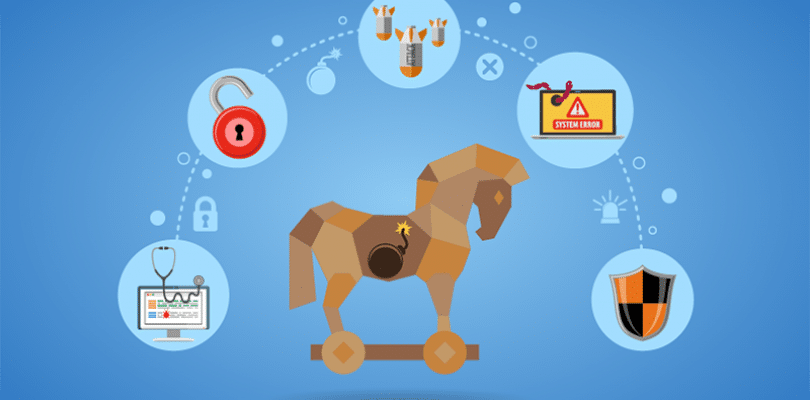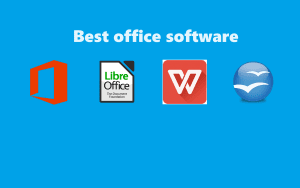
What is Spyware?
Spyware is a type of malware programmed to monitor the activities on the target device. Nobody wants a privacy breach and this is why such malicious programs are installed in stealth mode so that the device owners smell a rat.
Snoopware is an alternative term for a spyware. The primary objective of these programs is to track the activities on the target device and share them with the host computer though Email logs. A number of keyloggers and spy tools are available on the internet as trial as well as premium (paid) version.
Legal Issues
All spy tool programmers advertise their products as Employee Monitoring or Child Monitoring tools and standard installation requires the physical access to the device. Nothing malicious till now. But things don’t stop here!
Remote Installation
A huge majority of customers doesn’t purchase these tools for ethical/legal use. Most of the people download/purchase spy tools to secretly access and monitor someone else’s device. For this, hackers opt for remote installation spyware. Remote installation enables the hackers to install a spy tool or a keylogger without having physical access to the target device. This process works in stealth-mode that means that the device owner doesn’t get a notification/warning during and after the installation.
Types of Spyware
Different installation methods and objectives categories the spy tools in the following types:
• Adware
Advertisers use these tools to monitor the user’s browsing habits, likings, and trends, in an attempt to better organize their advertising strategy to target the most relevant customers.
• Trojans
These programs don’t have the ability to get installed as an independent program. The programmers camouflage Trojans to make them look legitimate. The main objective, in this case, is to reach the sensitive information, access confidential files, make changes in the files and duplicate the files without attracting the owner’s attention. These days, Trojans have become the most widely used type of smartphone spyware.
• Tracking Cookies
Tracking cookies track browsing history, search log and downloads from the internet. The objective mainly depends on the hacker’s intentions. Advertisers make frequent use of tracking cookies.
• System Monitors
A few years back, system monitors played havoc with the computers and now they have become a huge threat to the smartphones. Remote installation is a threatening characteristic of these programs. Once again, the intentions of the hacker determine the extent of damage but one thing is certain, you’ll never want such a spyware accessing your highly confidential information and activities.
Domestic Spyware vs Commercial Spyware
Domestic and commercial spyware share most of the features apart from remote installation. In the case of domestic spy tool, the process is completely legal and offers monitoring facilities to the company owners and parents to keep an eye on the employees and kids.
Commercial spy tools don’t need physical access to the target device (smartphone). The phrase, remote installation in stealth mode is suggestive of the malicious intentions of cybercriminals. You need to be careful, proactive and well aware of these programs to protect your privacy. Things have changed dramatically over the years and there is nothing impossible in today’s tech-oriented world.
Precautions against Spyware
The intensity of threat these malicious programs pose to the targeted device is threatening. There is no reason for keep delaying the precautionary measures because once the device is infected, you’ll not have much options. Following are some tested methods to help your device defend against a spyware:
1. Anti-Spyware
Anti-Spyware prevents the remote installation of keyloggers and other types of spying tools. You’ll get timely warnings and notifications about anything fishy with the device. Anti-spyware detects and restricts the installation of a malicious program. If the program is already resting somewhere on the device, it’ll be detected and removed. But the detection and removal of a spy-tool depends on the effectiveness of the anti-spyware program. It has to be efficient, timely updated and powerful enough to deal with the threats. Please bear in mind that free (trial) anti-spyware tools nothing more than a false satisfaction. Make sure to opt for the latest and credible anti-spyware to get the desired results.
2. Mindful Surfing
You need to be mindful of the websites and downloads from the internet. Beware of the cookies and supplementary web-pages as they mostly contain malicious programs. Don’t blindly trust the web-links from the unknown sources. Search for the reviews before downloading a program and don’t rely on just one or two sources.
3. Beware of the Pop-Ups
Often we see a pop-up window and click OK or AGREE, either intentionally or in a hurry. Such pop-ups contain auto-installation properties and once checked, the program is installed. The best thing is to press Alt + F4 to make sure you close the pop-up before it does anything malicious. Sometimes hitting the X icon doesn’t close it because the command behind X is also misleading.
How to Detect a Spyware?
They are hidden, remotely installed and operate in stealth mode and these are the features which make it harder to detect whether or not somebody is spying. Manually, there doesn’t seem a credible detection method. It is better to stay safe, keep your eyes open and doubt everyone, even your friends. The fact is that the people in your social circle mostly want to intrude your privacy.
On the other hand, you can’t do without the internet, Apps, and programs. To make sure you prevent spyware from entering your device, you need to seek help from a credible internet security agency. Even if you are sure that your devices are 100% safe today, you can’t guarantee the same for the future. You can’t trust each and everybody around and don’t know when and how somebody launches a malicious attempt. Stay safe, secure your privacy and keep things under control before it gets too late to react against a spyware. It doesn’t cost much to protect your devices. You cannot precisely imagine the loss in the case of an unauthorized access to any of your devices.
Summary
Spyware is greatest threat to privacy these days and you don’t know when and where somebody will attempt the privacy breach. Different types of spy tools are infecting companies and individuals, causing huge issues. It is the time to protect your devices against spyware. They are dangerous, tricky and hidden somewhere, maybe in your computer or smartphone.
 Comodo Antivirus
Comodo Antivirus  QuickTime
QuickTime  PDF XChange Viewer
PDF XChange Viewer  Power Automate Desktop
Power Automate Desktop  Rockstar Games Launcher
Rockstar Games Launcher  NETGATE Registry Cleaner
NETGATE Registry Cleaner 


